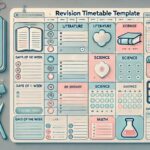In Year 4, your child will continue to hone their spelling skills, progressing to more complex words and rules. They’ll become more proficient readers and writers, using dictionaries to verify uncertain spellings.
Read on to learn about the National Curriculum expectations for Year 4 spelling and discover effective strategies to support your child’s learning at home.
National Curriculum Expectations for Year 4 Spelling
By the end of Year 4, your child should be able to:
- Use a wider range of prefixes and suffixes
- Spell more homophones
- Correctly spell words that are often misspelt
- Apply the possessive apostrophe for both regular and irregular plurals
- Use a dictionary to check spellings
Here’s a list of words that children in Year 4(age 9) should know how to spell
| accident(ally) actual(ly) address answer appear arrive believe bicycle breath breathe build busy/business calendar caught centre century certain circle complete consider continue decide describe different difficult | disappear early earth eight/eighth enough exercise experience experiment extreme famous favourite February forward(s) fruit grammar group guard guide heard heart height history imagine increase important | interest island knowledge learn length library material medicine mention minute natural naughty notice occasion(ally) often opposite ordinary particular peculiar perhaps popular position possess(ion) possible potatoes | pressure probably promise purpose quarter question recent regular reign remember sentence separate special straight strange strength suppose surprise therefore though/although thought through various weight woman/women |
Supporting Your Child’s Spelling at Home
There are many ways you can assist your Year 4 child with spelling. Here are some top tips:
1. Assist with Spelling Homework
If your child is finding their spelling list challenging, try these techniques:
- Encourage Regular Proofreading: Teach your child to regularly review their writing for spelling errors. They should learn to identify words that don’t look right and verify them using a dictionary.
- Over-Pronunciation: For tricky words like “Wednesday,” encourage your child to say “Wed-nes-day” as they write. Emphasising every syllable can help them remember the correct spelling.
- Writing by Hand: Have your child write down words they need to learn. The physical act of writing helps reinforce the spelling in their memory more effectively than typing.
- Highlight Tricky Parts: Focus on the difficult sections of a word. For example, highlight the “ai” in “said” to help them remember it. Use highlighters or underline parts of the word to make it stand out.
2. Engage with Spelling Games
Playing games can make learning to spell fun and engaging. Try these activities:
- Online and Traditional Games: Games like Word Worm and traditional games like Hangman can make spelling practice enjoyable.
- Silly Sentences: Challenge your child to create silly sentences using their spelling words. For instance, if their list includes “room,” “took,” “hoop,” “foot,” and “book,” they might write: “The boy took his book across the room but got his foot caught in a hoop.” Illustrating these sentences can add an extra layer of fun.
3. Utilise the Right Resources
Learning to spell is a gradual process, and each child progresses at their own pace. Whether your child picks up spelling quickly or needs more time, there are plenty of resources available to support them. Explore free activities and tools to help them master their spelling skills.
Free Spelling Activities
- Word Lists and Practice Sheets: Access a range of word lists and practice sheets tailored for Year 4.
- Interactive Online Tools: Use online platforms that offer interactive spelling games and activities.
- Educational Videos: Watch expert-led videos on grammar, punctuation, and spelling to get more ideas on how to support your child.
Conclusion
Supporting your child’s spelling development in Year 4 is crucial for their literacy skills. By using a variety of methods and resources, you can make spelling practice enjoyable and effective. Remember, patience and encouragement are key as your child navigates the complexities of English spelling.








